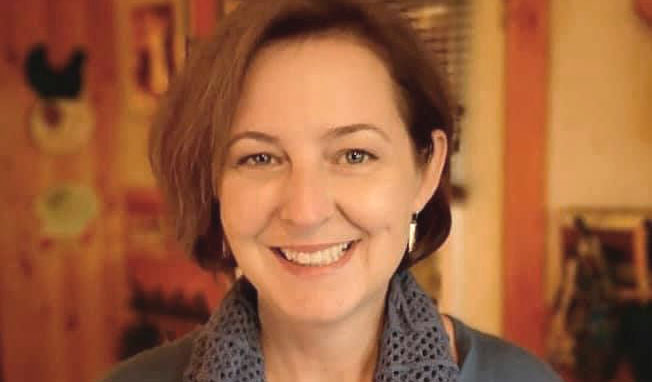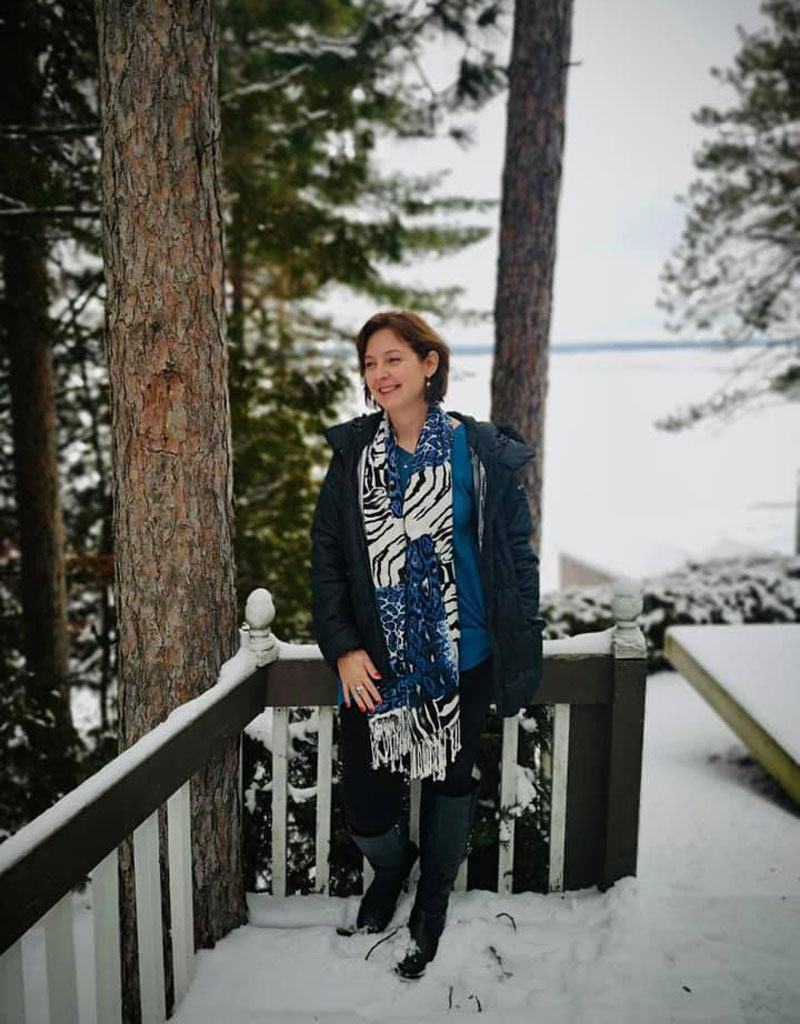Darlene Denis-Friske knew from an early age that she was destined to pursue a career in a helping field.
Born in Temiscaming, Quebec to an Algonquin mother and French-Canadian father, the self-described ‘lifelong learner’ enrolled in a three-year Child and Youth Worker diploma program out of high school, then went on to complete an undergraduate degree in Psychology.

She then spent the early part of her career working as a school counsellor in seven different schools in Renfrew County, earning accolades along the way – including winning the Elementary Teachers’ Federation of Ontario’s 2003 Professional Support Person of the Year Award and a nomination for the 2004 Krista Sepp Memorial Award for Mentoring.
“From there, my career evolved, and different interests and directions emerged for me. I decided to complete my Masters,” she said.
As both a busy professional and mother of young children at the time, Denis-Friske said she was initially drawn to Yorkville University for the flexibility of its online Master of Arts in Counselling Psychology (MACP) program and found herself impressed with the calibre of learning it entailed.
Characterizing her MACP degree from Yorkville as having a “tremendous” impact on the trajectory of her career, it was only natural that when Denis-Friske decided she wanted to continue furthering her studies nearly eight years later, she opted to enroll in her alma mater’s recently launched Doctor of Counselling and Psychotherapy degree program.
“I deeply appreciated the level of expertise, the wisdom, and the mentorship of the faculty at Yorkville. I also benefitted the different perspectives across contexts and geographies, which is possible in an online format, where you can be taking a course with a professor from one side of Canada, and then your next course is with a professor from the other side of Canada,” said the Class of 2013 MACP alumnus, who lives in the Ottawa Valley.
“The richness of such a diverse learning experience was exciting for me. I found the curriculum well organized as a learning progression with a great calibre of professionalism.”
It was also through Yorkville’s MACP program that she was introduced to the West Champlain Family Health Team – first as a practicum placement site, then, after graduation, as her employer.
“I continued working with this medical health team in an Ontario setting, now as a Registered Psychotherapist, where I provide counselling and psychotherapy services, group work, program development, and workshops. I also provide consultation within our multi-disciplinary team as needed,” said Denis-Friske, now a certified member of the Ontario Association of Mental Health Professionals and registered member with the College of Registered Psychotherapists of Ontario.
“I also supervise Masters-level students. As a matter of fact, I currently have two (MACP) students from Yorkville being supervised in their practicums with our health team. So, as you can see, the domino mentorship effect unfolds in rewarding directions.”
With her recent enrolment in Yorkville’s Doctor of Counselling and Psychotherapy program, Denis-Friske said she hopes to further enrich her career and advance its trajectory by continuing to expand on her knowledge and expertise in the “art and science” of psychotherapy.

Now, having just completed her first term of study, she is confident she will graduate with the tools necessary to emerge as a leader with a high degree of mastery in her field.
“I’m a lifelong learner. I am just that person who continually seeks enrichment and mentorship opportunities. I appreciate being engaged, excited, and continuously learning – it gives me a skip in my step.”
– Darlene Denis-Friske, Doctor of Counselling and Psychotherapy student
“I’m driven to have impact as a leader in the field. I want to continue to develop my mentorship skills, my supervision skills…I am a big believer in mentors. It doesn’t matter what age, stage or season I’m at in my career, I deeply value the role of mentorship in my life.”
While Denis-Friske said she’s so far enjoying the higher level of thinking and peer discussion the program has afforded her, she’s very much looking forward to tackling the applied scholarship portion of her doctorate studies at Yorkville.
This particular facet of her Doctor of Counselling and Psychotherapy studies, she feels, will give her and her classmates an excellent opportunity to delve into aspects of the field they are most passionate about.
“We will have encouragement, support, structure, and direction to develop our own area or niche of what we want to study, what we want to research, what we want to develop as our project, and what we ultimately want to contribute to the field,” she said.
For Denis-Friske’s part, she’s planning to seize upon the opportunity afforded by the applied scholarship project to contribute to an understanding of the primacy of the therapeutic relationship in the work psychotherapists do.
“In psychotherapy, we discuss how it is the context of the relationship that allows us to do our work and, indeed, the relationship that heals. Although this understanding is already evidence-based, this insight becomes increasingly obscured or eclipsed with a focus on techniques, tools, packaged approaches, and the language of an ‘evidence-based practice’,” she explained.
“I would propose instead the development of a relationship-based, research-informed practice (RRIP), bringing the concept of ‘relationship’ to the fore of our language and positioning in the work of psychotherapy. This is my area of focus and advocacy as I move forward.”
Ultimately, Denis-Friske said she hopes that earning her Doctor of Counselling and Psychotherapy – “the highest degree possible” in her field – will demonstrate her dedication and commitment to her vocation.
“It will contribute to my voice and currency in the field, especially if I decide to pursue new or advanced opportunities as I walk along – maybe towards faculty work, or towards publication, or towards structuring programs or applying for funding,” she said.
“I think it will only strengthen my voice, my message, my advocacy, my confidence, my ability to speak meaningfully and, ultimately, to be meaningfully heard.”






